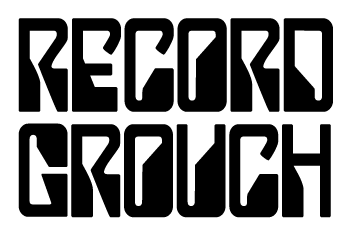 Image 1 of 1
Image 1 of 1


Elkotsh: rhlt jdi (Heat Crimes/Hizz)
Easily our greatest discovery of 2025 comes via Cairo’s HIZZ project and the shop favorite Heat Crimes label!!
Egyptian producer Elkotsh’s debut, rhlt jdi(HC020/HIZZ01, 2025), experiments with mahraganat, placing blown-out and melodic synth lines alongside dramatic percussive beats, both actual drums and electronic rhythms. These musical and formal structures, to say nothing of texture and mood, form what we imagine might be happening at forward thinking street festivals and clubs “abroad,” though we may be conflating the futuristic bar scenes from Star Wars. We probably sound like Benedict Anderson here, a mildly uncomfortable voice to adopt in our EOY enthusiasm, but this Egyptian record sounds amazing, folks, filled with dynamic and assorted moods/voices.
Elkotsh’s early introductions to music came from local wedding parties in Shubra El-Kheima, a densely packed area on the edge of Cairo. These bands performed updated variants on shaabi music, a genre that first emerged in the 1920s, and which has assumed two contemporary forms this century: electro-shaabi and mahraganat. Awareness of these genres spread fast on YouTube, which during the pandemic is how/where we discovered it.
From the one-sheet:
“Spurred on by the early pioneers like Figo, DJ El Soweisy and Amr Haha, Elkotsh wanted to try his hand at production, but the process isn't easy when you're strapped for cash. So, accompanied by his childhood friend Mahmoud Samka, Elkotsh would regularly walk 10 kilometers to Cairo's El Matareya district to watch recording sessions unfold in real time, studying the process and making mental notes. The studio was generous enough to pass the two green-gilled beatmakers a copy of Fruity Loops and a handful of sample packs, and they began to develop their own sound in private, recording and experimenting with nothing but a computer and a trashy dollar bin microphone.
Even when family commitments forced Elkotsh into temporary retirement for a decade, he refused to lose his passion, spending his valuable free time poring over tutorials and studying the Egyptian music scene as it steadily evolved. And when he was ready to make his return, it was these years of research and development that allowed Elkosht to shift the direction of mahraganat. The result is rhlt jdi, nine loose-limbed shaabi hybridizations that manifest Elkotsh's dedication, struggle and relentless reinvention.”
Highest Recommendation!!
Easily our greatest discovery of 2025 comes via Cairo’s HIZZ project and the shop favorite Heat Crimes label!!
Egyptian producer Elkotsh’s debut, rhlt jdi(HC020/HIZZ01, 2025), experiments with mahraganat, placing blown-out and melodic synth lines alongside dramatic percussive beats, both actual drums and electronic rhythms. These musical and formal structures, to say nothing of texture and mood, form what we imagine might be happening at forward thinking street festivals and clubs “abroad,” though we may be conflating the futuristic bar scenes from Star Wars. We probably sound like Benedict Anderson here, a mildly uncomfortable voice to adopt in our EOY enthusiasm, but this Egyptian record sounds amazing, folks, filled with dynamic and assorted moods/voices.
Elkotsh’s early introductions to music came from local wedding parties in Shubra El-Kheima, a densely packed area on the edge of Cairo. These bands performed updated variants on shaabi music, a genre that first emerged in the 1920s, and which has assumed two contemporary forms this century: electro-shaabi and mahraganat. Awareness of these genres spread fast on YouTube, which during the pandemic is how/where we discovered it.
From the one-sheet:
“Spurred on by the early pioneers like Figo, DJ El Soweisy and Amr Haha, Elkotsh wanted to try his hand at production, but the process isn't easy when you're strapped for cash. So, accompanied by his childhood friend Mahmoud Samka, Elkotsh would regularly walk 10 kilometers to Cairo's El Matareya district to watch recording sessions unfold in real time, studying the process and making mental notes. The studio was generous enough to pass the two green-gilled beatmakers a copy of Fruity Loops and a handful of sample packs, and they began to develop their own sound in private, recording and experimenting with nothing but a computer and a trashy dollar bin microphone.
Even when family commitments forced Elkotsh into temporary retirement for a decade, he refused to lose his passion, spending his valuable free time poring over tutorials and studying the Egyptian music scene as it steadily evolved. And when he was ready to make his return, it was these years of research and development that allowed Elkosht to shift the direction of mahraganat. The result is rhlt jdi, nine loose-limbed shaabi hybridizations that manifest Elkotsh's dedication, struggle and relentless reinvention.”
Highest Recommendation!!
